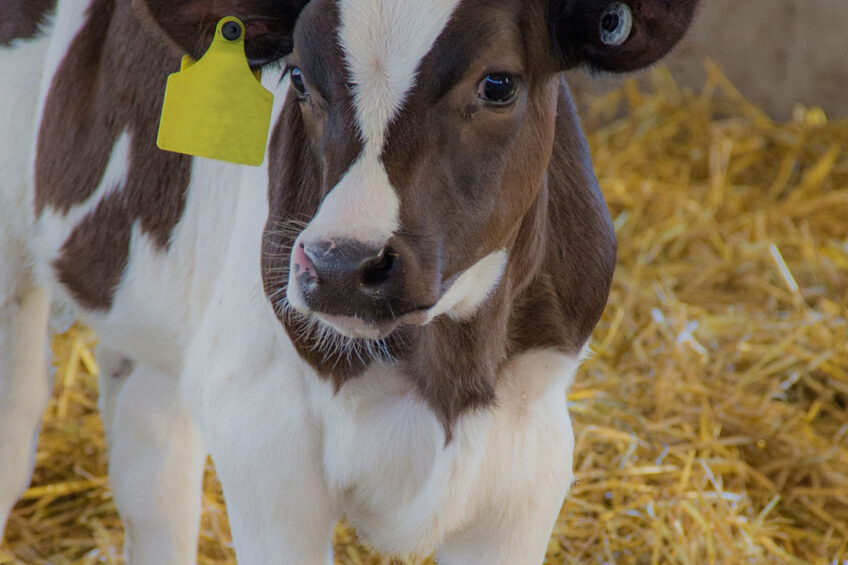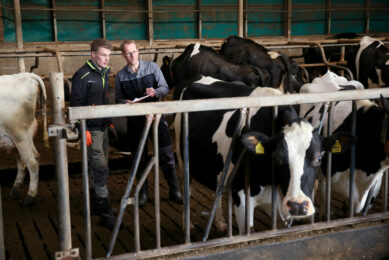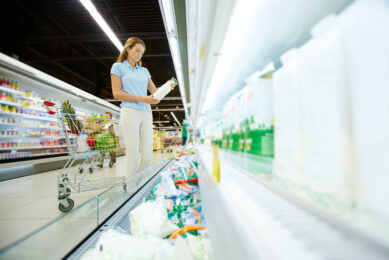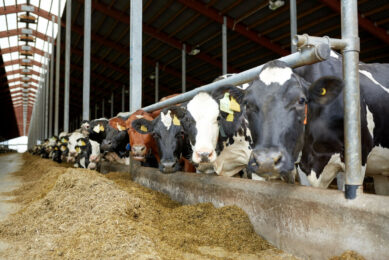Cloned dairy cows – what’s the situation?

Scientists from several countries have taken a step in developing cloning technologies in livestock during the past year. The first cloned cows are already giving milk, which is yet to pass trialling and testing. However, the immediate future of these technologies remains vague as the public’s readiness to accept milk from cloned cows remains questionable.
In early February 2023, Chinese state media reported that a group of Chinese scientists had successfully cloned 3 super-cows that can produce a remarkably high amount of milk. The 3 calves born in the Ningxia region in December and January are copies of highly productive cows from the Holstein Friesian breed, said to be capable of producing 18 tonnes of milk per year, or 100 tonnes of milk in their lifetimes.
Cloned cows in China
Jin Yaping, one of the leading scientists, told the state-owned publication Global Times that the birth of the super-cows was a breakthrough allowing China to preserve the very best cows in an economically feasible way. He also expressed confidence that the cloning technology will help China mitigate its dependence on foreign breeds.
If the cloning technology expands in China, it will dramatically change the face of the breeding segment of the global dairy industry dramatically. Currently, China imports roughly 70% of breeding cattle, a significant share of which comes from the EU.
The Chinese scientists estimated that only 5 cows in 10,000 can produce 100 tonnes of milk during their lifetime. It is common that highly productive cows are identified at the end of their lives when conventional reproduction methods can no longer be used.
In the next 2-3 years, China plans to produce 1,000 highly-productive clones, which, as Yaping claimed, over time, should become a foundation of the renewed Chinese dairy industry.
Genetically modified
China is not the only market where there are big hopes for cloning technologies. At the end of 2022, Russia’s first cloned cow gave birth to a healthy calf. While the Chinese scientists are only cloning high-productive animals, Russians went ahead and started cloning animals with genes of ordinary cows altered to enhance some properties.
Cloning a cow is essentially a test-run for producing a gene-edited animal, Petr Sergiev, one author of the study, explained, as scientists need to make sure all their methodologies are in order before implanting the edited embryos. The researchers already used the CRISPR/Cas technology to knock out PAEP and LOC100848610, 2 genes representing beta-lactoglobulin in the bovine genome, and obtain a line of genetically edited embryonic fibroblasts.
The idea was to make milk hypoallergenic, but there is much more this approach can offer. The scientists explained that the gene-editing technology could have a broad application, as changing the genome could help boost yields or make animals more prone to heat stress. Also, confirming that the cow could have healthy offspring is essential. The gene-editing technologies open a virtually indefinite scope of options for dairy farmers as to what and how to produce.
“I think this work will lay the methodological foundation for gene editing cattle in Russia, which will lead to more complex challenges. For instance, we can make cows produce certain proteins they normally don’t for biotechnological purposes,” he concludes.
Like in China, cloned cows could come in handy for the Russian dairy industry, which seeks to mitigate its dependence on imports from Western countries, as sanctions threaten to disrupt supplies.
Stigma of Frankenfood
However, there are strong doubts about whether the milk from cloned cows could make its way onto grocery shelves in the foreseeable future.
“[There are] stirred up consumer fears about genetic engineering,” commented Dr Bjoern Boergermann, executive director of the Association of the German Dairy Industry.
During the past few years, European consumers have been reluctant to accept genetically modified organisms. In 2015/2016, the German food retail sector pushed the label Ohne Gentechnik or GMO-free. The dairies have fulfilled the wish of the retailer, and today, over 70% of the milk in Germany is produced in this way.
“The VLOG association sets the standard and certifies the companies. It says that GMO-free is very important for the consumer. In consumer surveys, these statements are always found in varying forms, depending on who is asking and how,” Dr Boergermann said, stressing that this is mainly about the GMO feed.
It is hard to predict whether cloning technologies will be widely accepted in Russia and China. In Russia, 66% of consumers believe that GMOs are dangerous for health, several public opinion polls showed.
In China, the Chinese government can’t see people trusting genetically modified crops either. In 2014, the authorities launched a media campaign aimed at improving the perception of GMOs among the population, but with little to no effect. A recent survey found that 46.7% of respondents had negative views of GMOs, with 14% believing it was a form of bioterrorism aimed at China.
In 2023, the European Commission is expected to judge whether the products obtained using CRISPR/Cas should be subjected to regulations controlling GMOs. So far, this concerns primarily grain, but in light of the recent progress in cloning farmed animals, the decision could be of great importance for the livestock industry, too. It remains to be seen, however, whether public opinion will embrace gene-editing technologies, even if lawmakers agree.
“In the recent past, the issue of CRISPR/Cas has been played out intensively in public by NGOs. This will now happen again the closer the EU comes to its decision,” Boergermann said.
Join 13,000+ subscribers
Subscribe to our newsletter to stay updated about all the need-to-know content in the dairy sector, two times a week.










